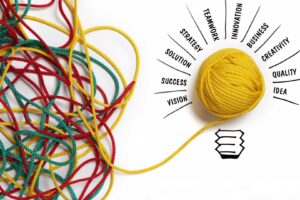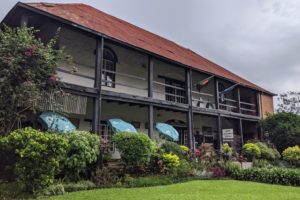I spent the last several days in Seattle, attending the annual meeting of the American Society of Tropical Medicine and Hygiene. The meeting lasts five days and attracts about 3000 scientists and physicians. I know a few other people attending, but in the masses of humanity, we rarely encountered one another. Sessions run from 7 a.m. until 8 p.m. and cover a variety of subjects including mosquito behavior, immune responses to tropical infections, and newly important diseases like monkeypox.
Many sessions intimidate me. Though I was in training for many years, I almost always feel I am the least intelligent person in attendance. For example, in a session on malaria immunology, I knew almost nothing. There were long discussions of interferons and cytokines, pro-inflammatory and anti-inflammatory chemicals in constant balance in our bodies. Interferons and cytokines are given a letter and/or number designation (interferon 1 beta, for example) and there are dozens. In the immunology sessions, scientists discuss the complex interactions between interferons, cytokines, and infections, as easily as they talk about the weather or recount what they had for breakfast. In contract, mention the word “interferon” and my eyes glaze over. The whole field of immunology seems impossibly complex. I do not even try to learn it.
My medical knowledge is narrowly focused. Though I know a lot about a small number of things, attending this meeting makes me understand how little I know about a lot of other important matters related to malaria. Do other people in medicine and science feel like this? How about people in other professions? Lawyers, for example. Do estate planning lawyers get a glazed look in their eyes when someone mentions criminal law? Possibly. What about non-professionals? My guess is people working in these areas are more intellectually flexible. I would think that an electrician who specializes in wiring new homes might take an interest in learning how employees of the electric company repair downed power lines. But maybe not. Is the knowledge base needed to perform both home wiring and fix a downed power line narrower than the one needed to design and conduct a clinical trial and understand the immunological response to the same disease?
Though I know a lot about a small number of things, attending this meeting makes me understand how little I know about a lot of other important matters related to malaria.
At this point in my life, unless I have to or want to learn something new, I ignore it. I used to love to learn new things just to be a more well-rounded person, things like geology or minutiae about baroque opera. I suppose immunology does not make the cut of things I both need to and want to know learn about. Rather than beat myself up about this, I need to accept the fact that I simply will never learn this area of science. And since acceptance is on the path to happiness, perhaps it is better to think this way in all aspects of my life. Ignorance has made me unhappy. If I can accept my ignorance, my guess is it will lead to bliss.






